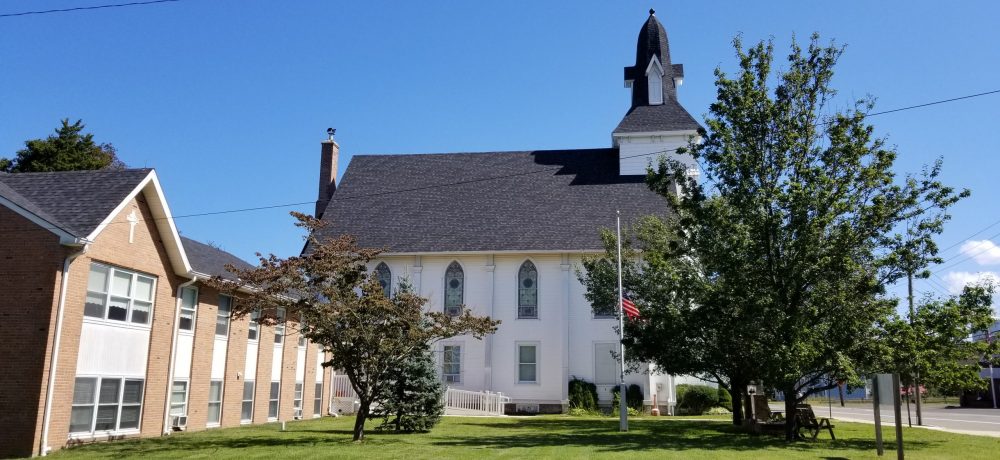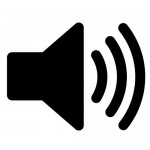Today Pastor Choi talks about what Jesus did in the Temple: He chased out the merchants, He healed the blind and the lame, and He welcomed children. So should we in today’s church make prayer as our priority in worship, experience God’s healing among us, and welcome children as Jesus did.
Following is a summary of the sermon:
House of God
Matthew 21:12-17 New American Standard Bible (NASB)
Cleansing the Temple
12 And Jesus entered the temple and drove out all those who were buying and selling in the temple, and overturned the tables of the money changers and the seats of those who were selling doves. 13 And He *said to them, “It is written, ‘My house shall be called a house of prayer’; but you are making it a robbers’ den.”
14 And the blind and the lame came to Him in the temple, and He healed them. 15 But when the chief priests and the scribes saw the wonderful things that He had done, and the children who were shouting in the temple, “Hosanna to the Son of David,” they became indignant 16 and said to Him, “Do You hear what these children are saying?” And Jesus *said to them, “Yes; have you never read, ‘Out of the mouth of infants and nursing babies You have prepared praise for Yourself’?” 17 And He left them and went out of the city to Bethany, and spent the night there.
Introduction
Background: Begin with an explanation of the Herod’s Temple in Jerusalem in the 1st century at the time of Jesus. The temple was standing on the Temple Mount facing east. You climb up the stairs and finally arrive at the Temple area (160 by 250 yards—six football fields). It consists of two parts: outer court and inner courts. The Court of the Gentiles is the outer court. As you continue walking westward, you enter the inner courts beginning with the Court of Women and the Court of the Israelites next (men only). Then, as you get closer to the Temple, you see the Altar on the left and Slaughter House on the right. Behind them, there is the Priest’s Court and the Temple. Inside the Temple there are Sanctuary and the Holy of Holies.
Focus on the court of the Gentiles: this is where money changers and animal sellers set up their tables and chairs. It was also the place where the Jews (both men and women) and the Gentiles were allowed. So were the blind, the lame, and children. In the porticoes, teachers of the Law would engage in theological discussions. There were a row of posts that separated the Gentiles’ Court from the inner courts. Made of stone, each post was about 5 foot-high and 2.5 foot-wide. “Along this balustrade at regular intervals were placed slabs with inscriptions in Greek and Latin forbidding Gentiles, on pain of death, to go further” (The International Standard Bible Encyclopedia, Vol. 4, p. 772). In fact, Jews didn’t mind slaying Gentiles who broke the boundaries (and the Roman authorities allowed them to kill even the Roman citizens), because they believed that the presence of uncircumcised Gentile in God’s sanctuary would profane God’s House (Ezekiel 44:7): ‘Thus says the Lord God, “No foreigner uncircumcised in heart and uncircumcised in flesh, of all the foreigners who are among the sons of Israel, shall enter My sanctuary (Ezekiel 44:9). Jews took God’s House very seriously. That was the place Jesus cleansed.
Contents
The House of God is where God’s heart is perpetually on (1 Kings 9:3). God deeply cares about what’s happening in His house. So does Jesus. Three things did Jesus in the temple: He drove out the merchants, healed the sick, and welcomed the children. Through His cleansing act, He gives us the following three lessons to remember and practice in the House of God.
- The No.1 priority in God’s House is prayer (v. 13). All other rituals and activities are secondary. In today’s text, the temple court was hustling and bustling with lots of activities; priests offer sacrifices on the altar, smoke from burnt offerings and incense arise into heaven, students listen to teachers, worshippers buy sacrificial animals and exchange money, even food (Wikipedia—Second Temple). I am sure some people prayed, too (Luke 1:10). However, when the main purpose and focus of God’s House, prayer and worship, is overshadowed by other activities, it is time to clean up the temple. That’s exactly what Jesus did. I believe He would do the same thing with today’s church when we lose our focus on prayer in God’s House.I believe it is time to restore prayers in today’s church and in church worship services. We ought to fill our sanctuary with prayers. E.g. Yeo-ui-do Full Gospel Church in Seoul, Korea. Nowadays, its membership is close to a million, it is the largest congregation in the world and in the history of the Church. Every time they gather for worship, they always start with prayers. All the members pray aloud for the pastor and for the ministries of the church. Here’s the number: one million prayers are offered in God’s House every Sunday. It would jam the heavenly prayer lines. The result is astonishing. Miracles and wonders take place in the name of Jesus. The presence of the Holy Spirit and God’s power is palpable. Here’s the thing: the congregation literally fills up the sanctuary with prayers. We serve the same God. Therefore, we ought to experience the same thing here in Manahawkin when we turn to the Lord with all our hearts and minds and pray. He will listen to our prayers as He did to that of Solomon’s (1 Kings 9:3). He will listen to ours as He does with the Full Gospel Church in Korea. Wouldn’t you join me transforming our church, the House of God, into a praying church, too?
- Healing is a part of God’s House (v. 14): both physical and emotional. During His public ministry, Jesus healed the sick anywhere He went; on the streets, in the house, in the wilderness, in the synagogue. He spent one third of His entire time for healing ministry. He also healed the blind and the lame in the temple in today’s text. The tragedy in God’s Church today is that we seldom experience God’s healing of the sick among us. Even the majority of believers in Christ first look up to doctors and medical technology for healing. Don’t get me wrong. I believe in medicine. I am not denying the importance of medical contributions to our physical healing. God still uses doctors and medicine for healing. However, when we only rely on them to the point where we totally deny or do not expect the divine healing among us, it becomes a problem. As far as I am concerned, God is still the Healer. He is the God of Healing. Therefore, both physical and emotional healing should naturally be demonstrated and witnessed in God’s House today including our own congregation. E.g. Once I was in a Prayer House in Korea. Hundreds of people were fasting and praying for their own problems: cancer patients, broken hearted people, depression, financial troubles, and so forth. I was one of them. One night a lady with liver cancer stood before us. With tears she begged us to pray for her healing. We did. Two days later, I saw her testifying in front of the people that God healed her entirely. Praise the Lord! In God’s House, Jesus still heals the people.
- Children are welcome in God’s House (v. 15). About a month ago, I spoke about Jesus’ welcoming and blessing of the children. Let us not forget. Jesus accepted children with open arms. So should we. I believe children shouldn’t be hushed in God’s House. Even infants and nursing babies are welcome in our Sunday morning services. Look at verse 16—God opens up the mouth of even infants and nursing babes—and He accepts their praises! I don’t mean to give any trouble to those parents of infants who want to worship God in peace and quiet without hassles with their infants.Rather, I am talking about our general attitude toward children during worship. Next time, when you hear a baby crying in the middle of the service, please do not frown at the child or the parent. In today’s text, however, that’s what the priests did. They got really upset with the children who said, “Hosanna (Save us Now!) to the son of David” (v. 16). Think about it. Why were they particularly angry with the children? For two possible reasons. First, they might have gotten upset with the content of the praises the children sang—Hosanna to the son of David. In other words, they didn’t want the children or anyone to acknowledge Jesus as the Messiah. The other possible reason is that the priests got angry with the way the children praised Jesus. Look at verse 15. The children cried out(Greek: krazo). It literally means to shout out on top of the voice. A similar example is found in Mark 10:47 where Bartimaeus the blind beggar cried out to Jesus to get His attention (he didn’t want to lose this once in a life time chance to regain his sight). So, when the children shouted and cried out their words saying, “Hosanna to the son of David!” the priests got indignant with the children.Now, how many of us would react like the priests, frowning at the kids, when we hear them making a joyful noise unto the Lord in our midst? How long would we insist and impose our own ways of worship and praising God unto them? Or, how many of us would accept the kids and encourage them to worship and praise God in their ways? E.g. I know some grown-up children who completely gave up on worshipping the Lord in church on Sunday morning, mainly because their parents were too strict with them when they were growing up. They, in fact, lost their interest in church all together. They felt that the Christian religion was shoved down their throats by their parents. They were often scolded harshly for minor misbehaviors during the worship. Many of them ended up having no fond memories of growing up in God’s Church. They never felt that they were welcome at God’s House.I humbly urge all of us especially parents who bring up their children in the Church, which is a necessary and an honorable thing to do. When you do so, please instill pleasant memories in their hearts and minds by treating them as a person, rather than a robot who sits quiet for an hour without making any noise. I encourage you to educate your child at home to show respect in the church; however, when you are at church with your child, and when the child makes an innocent noise, I wouldn’t chastise the child. Try to put yourself in the child’s shoes and try to look at everything from the kid’s perspective (songs, sermon, rituals, sit up quiet and so forth,…). Let’s treat them as Jesus did.
Conclusion
God doesn’t mind closing the churches. Europe is a good example. Many church buildings once filled with worshippers for centuries are closed now and being used as dance halls and storage rooms. Only the churches that fulfill God’s purpose will thrive and last long. I humbly remind all of us today to fill our church with fervent prayers, to experience the divine healing in the name of Jesus our Lord, and to welcome children as Jesus did. Let us pray.

